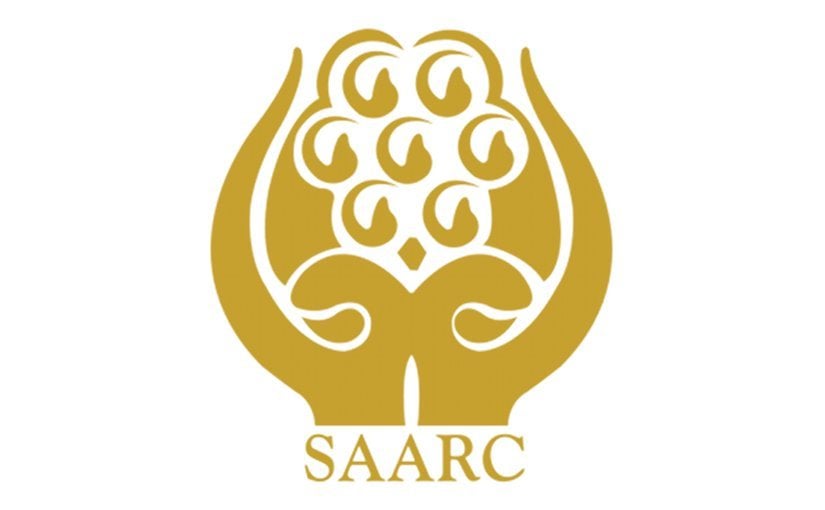News Flash
News Flash

DHAKA, Oct 15, 2025 (BSS) - A two-day long consultative workshop on the preparation of the first SAARC Development Report (SDR) was launched at a hotel in the capital this morning.
The General Economics Division (GED) of the Planning Commission hosted the workshop where delegates from Bangladesh, Bhutan, Maldives, Nepal, Pakistan, and Sri Lanka attended.
The Ministry of Foreign Affairs and the SAARC Secretariat coordinated the overall arrangements of the workshop with the technical and logistical support of the Asian Development Bank (ADB).
This event is being conducted as part of an earlier initiative of the SAARC Secretariat to finalize the SAARC Development Report (SDR) 2025. The theme of the workshop is “SDR 2025: Shaping the Future Together for a Resilient SAARC.”
Dr. Monzur Hossain, Member (Secretary) of the General Economics Division, inaugurated the workshop as the chief guest.
Prathma Uprety, Director, Information and Poverty Alleviation Division, SAARC Secretariat, and Dongxiang Li, Lead Regional Cooperation Specialist, Asian Development Bank, Manila, also spoke at the workshop, said a press release.
Dr. Posh Raj Pandey, Consultant, ADB, presented the draft of the SDR. Delegates of member countries also made country presentations on “Resilient SAARC to Shape Future Together – Country Perspective”.
In his inaugural speech, Chief Guest Dr. Monzur Hossain, Member (Secretary) of the General Economics Division (GED) commended the SAARC Secretariat for facilitating the consultation.
He emphasized “The SAARC Development Report must not remain a formality rather it should be prepared with thorough analysis, broad consultation, and implemented efficiently to make a real impact on people's lives,”
He acknowledged and thanked the Asian Development Bank for its logistical and technical support in organizing the consultative workshop.
Dr. Hossain further noted “South Asia remains as one of the least integrated regions in the world, with intra-regional trade below six percent of total trade. By reducing non-tariff barriers, improving logistics, and expanding cross-border transport and digital connectivity, SAARC can unlock immense potential for trade and investment.
Highlighting regional challenges, the chief guest stressed that poverty and inequality persist despite economic growth. “Bridging the digital divide and promoting SME development should therefore be collective priorities to ensure inclusive and sustainable growth.”
Prathma Uprety, Director, SAARC Secretariat stated that, the SAARC Secretariat is committed to promoting deeper regional cooperation and resilience across South Asia. “Through the SAARC Development Report 2025, we aim to advance socioeconomic growth, environmental sustainability, and gender equality…together we will shape a stronger, more inclusive and sustainable future for our region.”
Hoe Yun Jeong, Country Director, ADB emphasized the importance of strengthened regional cooperation in shaping a resilient and sustainable future for South Asia.
He highlighted ADB’s commitment to creating more jobs, promoting clean energy, and protecting public health to ensure long term stability and inclusive growth. The Country Director reaffirmed that collective efforts under the SAARC Development Report 2025 will drive shared prosperity across the region.
Dongxiang Li, Lead Regional Cooperation Specialist, ADB addressed the SAARC-ADB Consultative Workshop on the preparation of the SAARC Development Report 2025: “Shaping the Future Together for a Resilient SAARC.”
He highlighted the importance of socioeconomic development, environmental sustainability, gender equality, and institutional strengthening to enhance regional resilience.
Li reaffirmed ADB's commitment to deepening partnerships, promoting knowledge sharing, and supporting capacity-building initiatives for a stronger and more resilient SAARC region.
In their presentations, the member countries highlighted their efforts related to poverty alleviation, inequality reduction, removal of regional trade barriers, post-pandemic recovery issues, human capital development, connectivity, and climate vulnerabilities.
They also outlined key recommendations and way forward. Bangladesh underscored the interim government's initiatives to restore macroeconomic stability, bring discipline to the fragile banking and financial sector, and rebuild institutions.
The consultative workshop will continue until tomorrow and is expected to adopt a report, outlining recommendations and a timeline for the preparation of the SAARC Development Report 2025, which will serve as a guiding document to achieve SDG targets in SAARC countries.
The workshop is being chaired by Bidhan Baral, Joint Chief (Joint Secretary), GED.